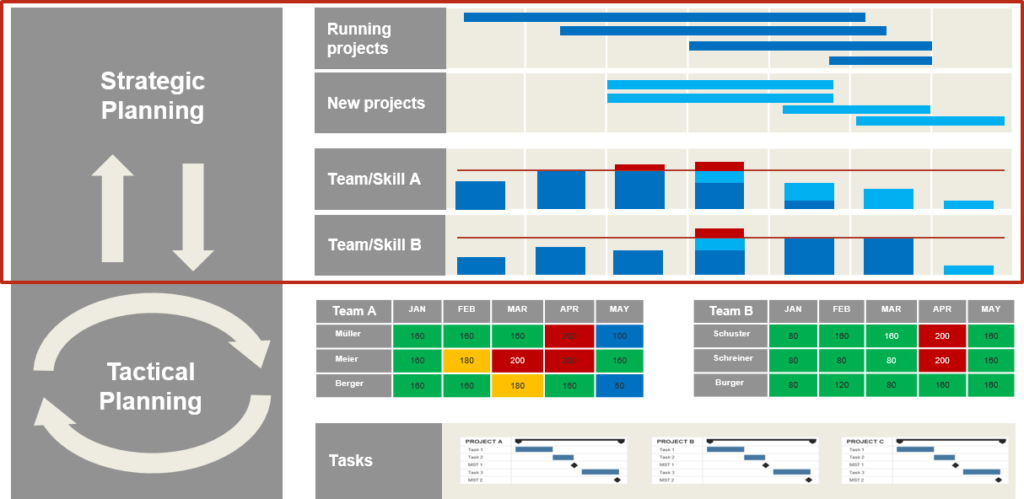
Do you often find yourself overwhelmed by the sheer amount of tasks and responsibilities in project management? If so, then understanding capacity becomes crucial. Capacity in project management refers to the amount of work that your team can handle within a given period. It is essentially about finding the balance between the demands of the project and the resources available. By grasping the concept of capacity, you can effectively allocate resources, set realistic timelines, and ensure the successful completion of projects. In this article, we will explore the importance of understanding capacity in project management and provide you with practical tips to optimize your team’s efficiency. So, let’s get started and unlock the secret to successful project delivery!
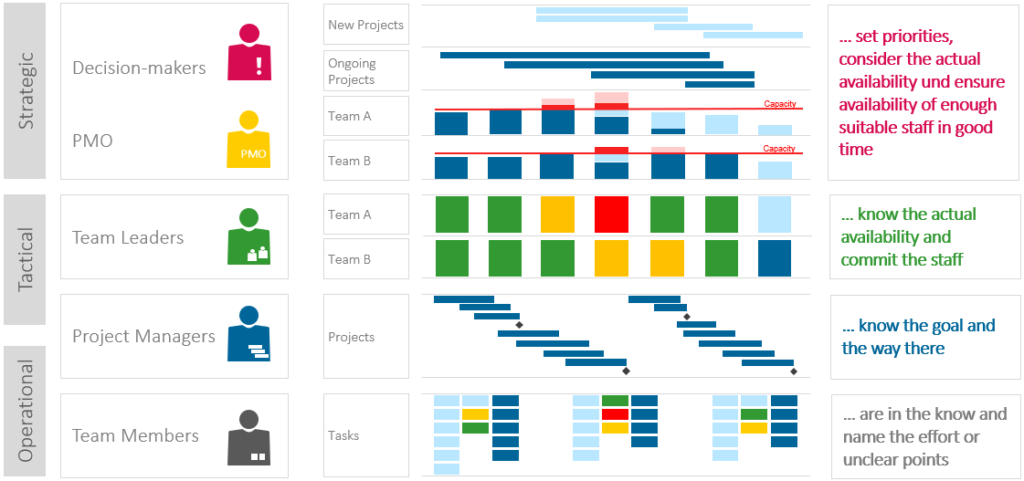
Understanding Capacity in Project Management
Capacity plays a crucial role in project management. It refers to the maximum amount of work that can be completed within a given timeframe, considering the available resources and constraints. Having a clear understanding of capacity is essential for successful project planning and execution. In this article, we will explore the definition of capacity, its importance in project management, different types of capacity, factors affecting capacity, measuring capacity, strategies for managing capacity, capacity planning techniques, benefits of effective capacity management, challenges in capacity management, and conclude with key takeaways.
Definition of Capacity
Capacity in Project Management
Capacity in project management refers to the capability or ability to perform work within a defined time frame. It encompasses the resources, such as people, materials, and equipment, needed to carry out the tasks required to complete a project. Understanding capacity helps project managers allocate resources effectively and ensures that project timelines and budgets can be met.
Importance of Capacity in Project Management
Capacity is a critical aspect of project management as it enables organizations to estimate their ability to complete projects successfully. It helps identify the workload that can be handled, anticipate potential constraints, and make informed decisions regarding resource allocation and project scheduling. By effectively managing capacity, project managers can optimize resource utilization, reduce risks, and enhance overall project efficiency.
Types of Capacity
Resource Capacity
Resource capacity refers to the availability and capability of the resources required to complete a project. This includes human resources, such as skilled team members and subject matter experts, as well as physical resources like equipment and facilities. Understanding resource capacity is essential for accurately estimating project timelines and determining whether the necessary resources are available to meet project demands.
Timeline Capacity
Timeline capacity refers to the available time frame for completing a project. It takes into account the project start and end dates, as well as any specific milestones or deadlines. Understanding timeline capacity helps in setting realistic project schedules, managing dependencies, and ensuring that project deliverables are completed within the agreed-upon time frame.
Financial Capacity
Financial capacity relates to a project’s budgetary constraints and the availability of funds to support project activities. It considers the financial resources required to execute a project, including operational costs, procurement of materials and services, and other financial commitments. Being aware of financial capacity allows project managers to make informed decisions regarding budget allocation, expense tracking, and financial risk management.
Factors Affecting Capacity
Project Complexity
The complexity of a project significantly impacts its capacity. Complex projects often involve multiple stakeholders, intricate processes, and interdependencies, which require more time and resources to complete. Understanding the complexity of a project helps project managers identify the level of effort required and adjust resource and timeline capacity accordingly.
Availability of Resources
The availability of resources directly affects a project’s capacity. Limited availability of skilled personnel, equipment, or materials can cause delays and hinder project progress. Project managers need to consider the availability of resources and plan accordingly to ensure optimal resource utilization and avoid bottlenecks.
Budget Constraints
Budget constraints can impact a project’s capacity, as they determine the financial resources available for execution. Insufficient funds may limit the availability of resources or force project teams to prioritize certain activities over others. Project managers must carefully manage budget constraints to ensure that the project’s capacity aligns with the available financial resources.
Skillset of Project Team
The skillset of the project team plays a vital role in determining a project’s capacity. A team with diverse skillsets and expertise can handle a wider range of project activities, increasing capacity. Conversely, a lack of necessary skills or expertise may require additional time and resources, reducing capacity. Project managers need to assess the skillset of their teams and plan accordingly to optimize capacity.
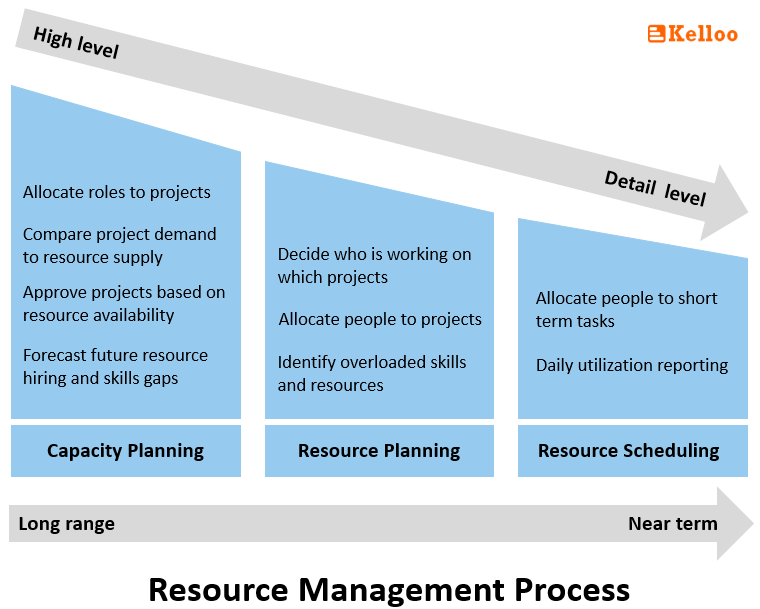
Measuring Capacity
Determining Resource Capacity
Determining resource capacity involves assessing the availability and capabilities of the resources required for project execution. This includes evaluating the number of available team members, their skill levels, expertise, and any potential constraints or limitations. By accurately determining resource capacity, project managers can allocate resources effectively, ensuring that tasks are assigned to the right people with the necessary skills.
Evaluating Timeline Capacity
Evaluating timeline capacity involves analyzing the project’s start and end dates, considering any fixed milestones or deadlines, and understanding the estimated time required for each task. This evaluation helps project managers determine whether the timeline is realistic and feasible within the given constraints. By evaluating timeline capacity, project managers can identify potential bottlenecks and make necessary adjustments to the project schedule.
Analyzing Financial Capacity
Analyzing financial capacity entails assessing the project’s budgetary constraints, including available funds, estimated costs, and any budget limits. This analysis helps project managers determine the financial resources needed to complete the project successfully. By analyzing financial capacity, project managers can make informed decisions regarding budget allocation, cost control, and risk management.
Strategies for Managing Capacity
Resource Allocation and Optimization
Effective resource allocation involves assigning the right resources to specific project activities based on their skills, expertise, and availability. Optimizing resource allocation ensures that resources are utilized efficiently and that project tasks are completed within their specified time frames. This strategy helps maximize capacity, minimize resource bottlenecks, and enhance overall project performance.
Risk Management
Effective risk management helps identify potential risks and uncertainties that may impact a project’s capacity. By proactively assessing and mitigating risks, project managers can avoid potential disruptions and ensure that project timelines are not adversely affected. Robust risk management strategies enhance capacity management by minimizing the impact of unforeseen events.
Team Collaboration
Promoting team collaboration is essential for capacity management. Encouraging effective communication, knowledge sharing, and collaboration among project team members fosters a supportive and efficient work environment. Collaborative teams can leverage collective skills and expertise, increasing their overall capacity to tackle project challenges and deliver successful results.
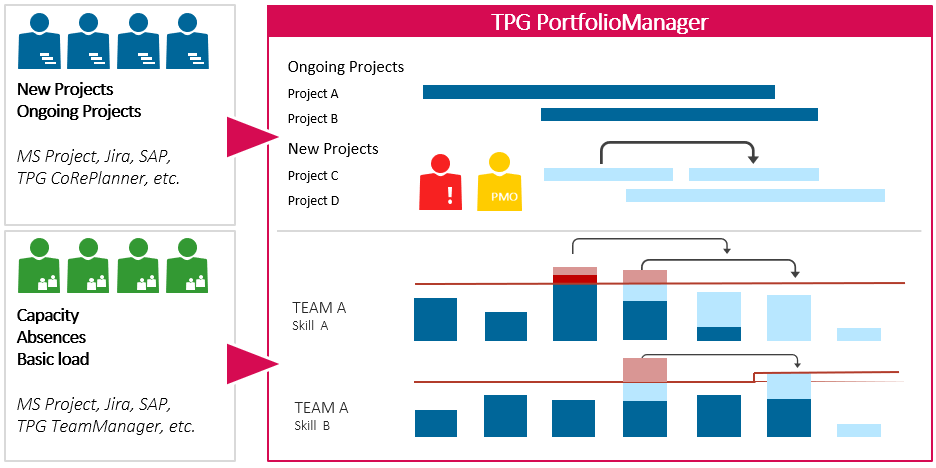
Capacity Planning Techniques
Long-term Capacity Planning
Long-term capacity planning involves forecasting and estimating capacity requirements for future projects or periods. It helps organizations align their resources, capabilities, and infrastructure to meet anticipated project demands. Long-term capacity planning enables organizations to make informed decisions regarding resource acquisition, training, and infrastructure development.
Short-term Capacity Planning
Short-term capacity planning focuses on managing capacity for ongoing or imminent projects. It involves assessing current resource availability, skillsets, and project timelines to allocate resources effectively. Short-term capacity planning allows project managers to adjust resources, timelines, and priorities to better meet project demands.
Scenario Planning
Scenario planning involves creating multiple scenarios and evaluating their potential impact on project capacity. Project managers can assess various scenarios that consider changes in resource availability, project scope, timelines, or budget. By analyzing different scenarios, project managers can develop contingency plans, identify potential risks, and optimize capacity management strategies.
Benefits of Effective Capacity Management
Improved Project Efficiency
Effective capacity management ensures that resources are allocated optimally, resulting in improved project efficiency. When the right resources are assigned to the right tasks at the right time, project teams can work efficiently, avoiding delays and achieving project milestones within the allocated time frame. Improved project efficiency leads to enhanced productivity and greater customer satisfaction.
Enhanced Resource Utilization
Efficient capacity management enables organizations to utilize their resources effectively. By accurately assessing resource capacities and allocating them based on project requirements, organizations can avoid overloading individuals or underutilizing available resources. Enhanced resource utilization leads to improved performance, higher output, and reduced wastage of resources.
Better Risk Mitigation
Capacity management is closely tied to risk mitigation in projects. Effective capacity management allows project managers to identify potential risks, assess their impact on project capacity, and develop appropriate mitigation strategies. By proactively managing risks, organizations can minimize project disruptions, avoid unforeseen delays, and ensure successful project delivery.
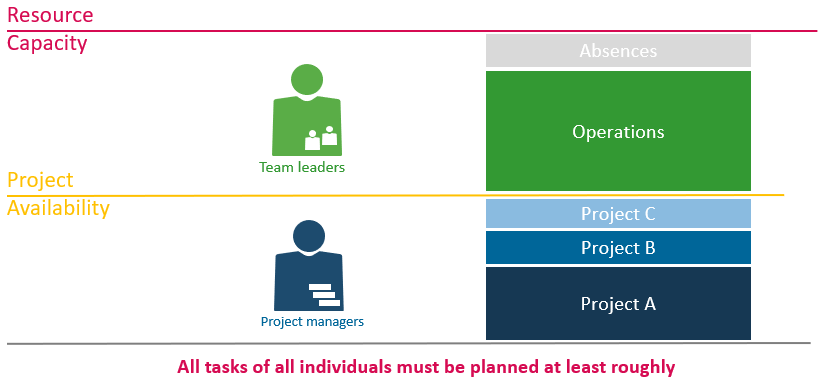
Challenges in Capacity Management
Uncertain Demands
Uncertain demands pose a significant challenge in capacity management. Changing project requirements, unpredictable market conditions, or dynamic customer needs can impact project capacity. Project managers must have flexible capacity management strategies in place to respond effectively to evolving demands and uncertainties.
Resource Constraints
Resource constraints, such as limited availability of skilled personnel or equipment, can make capacity management challenging. Conflict in resource allocation, competing project priorities, or resource limitations may lead to delays or compromises in project capacity. Effective resource management and collaboration across projects can help mitigate these constraints.
Changing Project Scope
Changing project scope can disrupt capacity management. If project scope is expanded or altered, it may require additional resources, which can impact capacity planning. Project managers should carefully assess the impact of scope changes and adjust capacity management strategies accordingly to ensure successful project outcomes.
Conclusion
Capacity is a crucial aspect of project management, determining the ability of an organization to complete projects successfully within defined constraints. Resource capacity, timeline capacity, and financial capacity play vital roles in project execution. Various factors, such as project complexity, availability of resources, budget constraints, and the skillset of the project team, affect project capacity. Measuring capacity helps project managers allocate resources effectively and set realistic project timelines. Strategies for managing capacity include resource allocation and optimization, risk management, and team collaboration. Capacity planning techniques, such as long-term and short-term capacity planning, and scenario planning, help organizations meet project demands. Effective capacity management leads to improved project efficiency, enhanced resource utilization, and better risk mitigation. Challenges in capacity management include uncertain demands, resource constraints, and changing project scope. By understanding and effectively managing capacity, project managers can ensure successful project delivery and organizational success.
